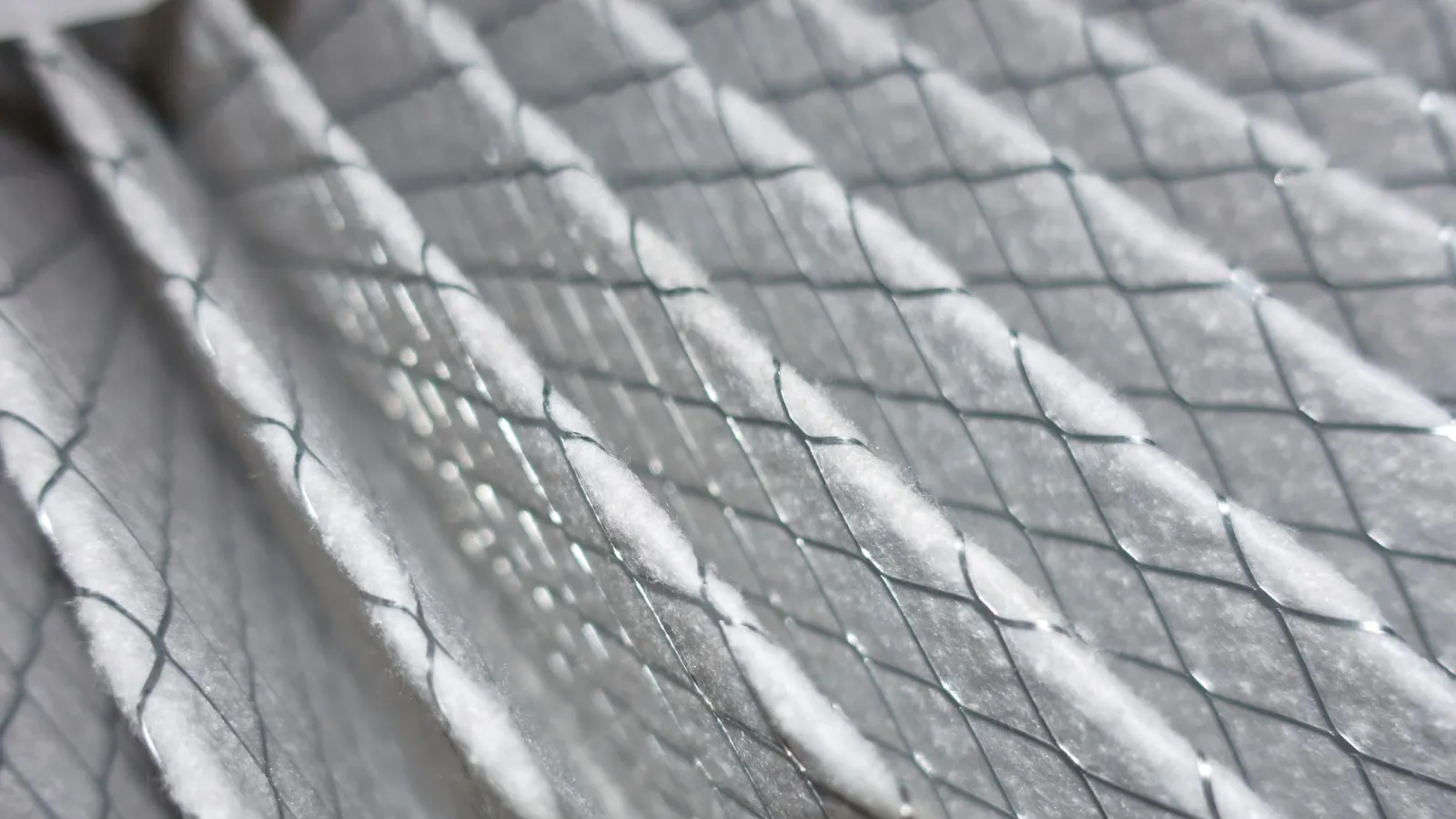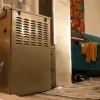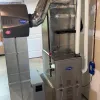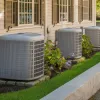If you’re shopping for a new air filter, you may have come across MERV ratings.
This little scale, which ranges from 1 to 16, appears on the label of just about every air filter. And in many cases, the higher the number, the pricier the filter.
So, what is a MERV rating on an air filter? Is it something you should care about?
Let’s take a look at the significance of MERV ratings and why you might choose a higher or lower-rated air filter.
What HVAC air filters do
Your heating and air conditioning system has an air filter. If your filter lives at the air return (and you’ve got multiple returns), you might have multiple filters.
But what are they for?
Many people would say that an air filter is there to remove contaminants so that the air you breathe is fresh and clean. They’re not wrong!
However, the primary purpose of an air filter, historically-speaking, has always been to remove particulates from the air so that they don’t collect on the HVAC system’s internal components.
For instance, dirt and dust accumulation on your AC’s evaporator coil can encourage bacterial growth. That’s bad for air quality, and it might even stink!
So the main reason to have a filter is to keep your HVAC system clean. In recent decades, improving indoor air quality has become another important reason to use an air filter. And the filter manufacturers make filters with varying levels of filtration to satisfy air quality-conscious homeowners.
What MERV ratings mean
This brings us to MERV ratings.
MERV stands for Minimum Efficiency Reporting Values, and the scale ranges from 1 to 16. An air filter rated at MERV 1 will capture relatively few airborne particles. One rated at 16 will capture lots of them–all the way down to particles that are 0.3 microns in size!
The whole point of MERV ratings is to inform consumers about the air quality-enhancing potential of an air filter. The higher the MERV rating, the more airborne stuff gets filtered.
Most 1” pleated air filters sold at the hardware store will be in the MERV 8 to 14 range.
On the lower end, these filters will capture pollen and dust mites but allow bacteria and volatile organic compounds (VOCs) to pass through the filter. On the higher end, these filters will block the bacteria and VOCs but possibly allow contaminants that are even smaller, such as viruses.
Should you buy an air filter with a higher MERV rating?
Since everyone wants to breathe the cleanest, freshest air possible, you might be thinking it makes the most sense to go with the highest MERV air filter you can find.
But there’s a problem with that.
Remember how we said that the primary purpose of an air filter is to prevent contaminants from soiling and damaging HVAC components? Well, too much filtration can be just as bad as too little… although in a different way.
Let’s say you normally used a MERV 10 filter but decided to “upgrade” to a MERV 14 because of air quality concerns.
Well, the more dense filter media in the MERV 14 filter will reduce airflow through the system. If you starve the HVAC system for air, a few different things can happen:
- You overwork the equipment, leading to excess wear and tear and, later on, premature failure.
- Due to lack of return air, AC or heat pump coil freezes over. This leads to reduced performance and efficiency; over time, it can also damage the system. It’s basically the same thing that happens when your air filter is really dirty.
- The HVAC system will no longer perform as expected, leaving you uncomfortable in your home.
Sometimes, all of those things can happen. And none of them are good!
That’s why it’s important to strike a good balance between filtering contaminants (for your health) and allowing sufficient airflow (for your system’s health). At PV, when we replace air filters during regular maintenance visits, we use MERV 10 1” pleated filters.
The MERV 10 rating sits at the sweet spot between solid air filtration and acceptable airflow, although anywhere between MERV 8 and 12 is probably fine in most homes.
The best filters for indoor air quality
If indoor air quality is a major concern and you want a really powerful air filter, what should you do?
Standard 1” filters above MERV 12 are iffy with respect to airflow. Is there a better option?
Yes, there is! In fact, there are two. Two and a half, actually.
Media filters
The first option is to get a media filter for your system. These are high-MERV filters that don’t block airflow enough to cause problems with your system. They achieve this by having much more surface area than a standard 1” filter.
After getting a media filter, you can install UV lights inside your indoor unit to destroy any bacterial growth that might proliferate on the AC’s evaporator coil. Mold, noxious odors, VOCs? You can say goodbye to those!
By the way, UV lights are the “one half” solution we mentioned above. They’re not an air filter, but they’re a great complement to a high quality air filter!
HEPA filters
The ultimate air filtration option is a HEPA filter. This is what they use in hospitals to ensure airborne viruses don’t proliferate among rooms and floors.
HEPA stands for high efficiency particulate arrestance. These special filters–really, they’re filtration systems–capture particles smaller than 0.3 microns in size. Since the filter media in a HEPA system is so dense, it requires its own fan to move air through the system.
HEPA filters are a fantastic option when indoor air quality is a top priority and you insist on having the cleanest possible air.
Conclusion: MERV ratings can help you gauge the extent to which an air filter captures contaminants
What they don’t show you is whether the filter blocks airflow and causes problems with your HVAC system. Most systems need more airflow than the highest-MERV air filters allow to pass.
If your system uses a standard 1” filter, MERV 10 or thereabouts is a good compromise between airflow and filtration quality. However, if you want to optimize indoor air quality, a media filter or HEPA system is the way to go.
Do you live in Metro Atlanta and have indoor air quality concerns? PV Heating, Cooling & Plumbing can help! Call us today at (404) 798-9672 to discuss your air quality priorities!





